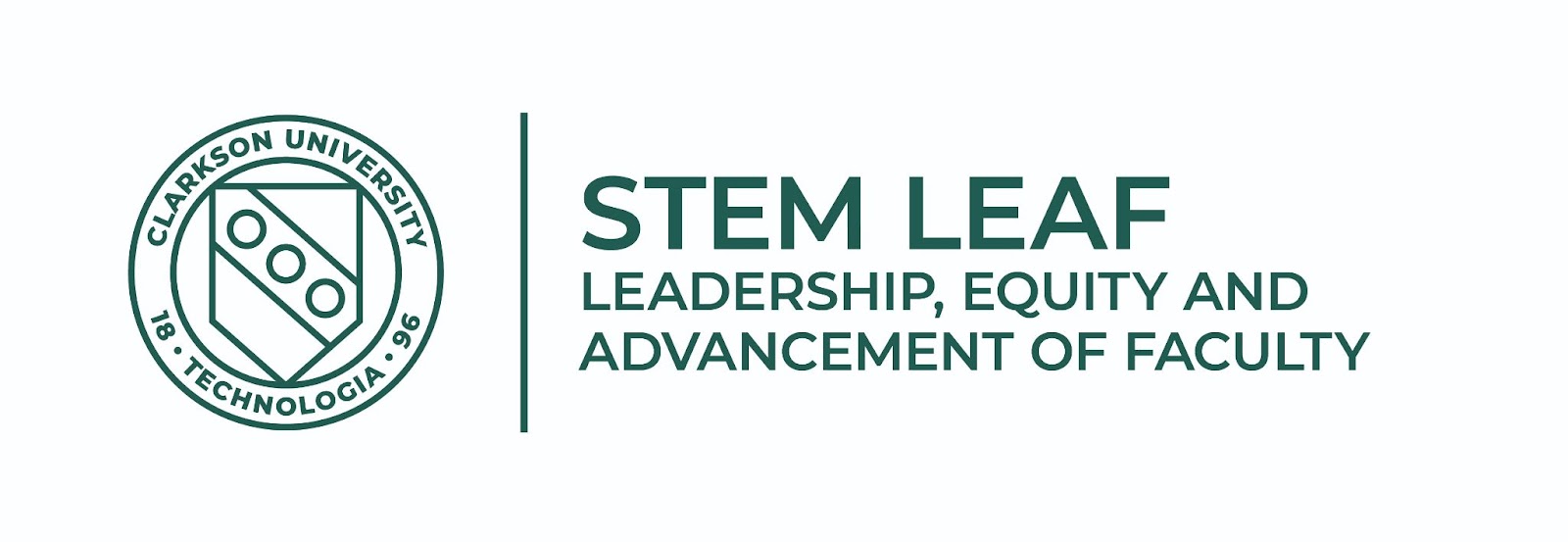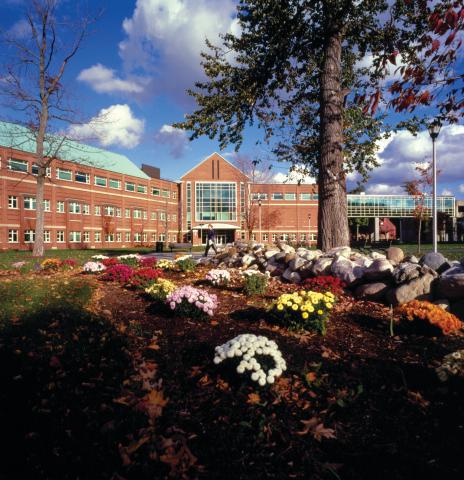
Welcome to the February edition of the STEM LEAF/ADVANCE Newsletter!
Clarkson’s NSF ADVANCE grant is designed
1) to effect positive institutional change around reduction of implicit or unintentional bias associated with gender and intersectional issues of race, ethnicity, country of origin, sexual orientation, and disability,
2) to systematically and equitably support the development of inclusive leadership skills and the professional advancement of women STEM faculty, and
3) to implement sustainable, systematic changes across the University in support of these goals.
Resources/News
Women Do Higher Ed’s Chores. That Must Change., by Liz Mayo in The Chronicle of Higher Education
“From the mundanely sexist to the lawsuit-worthy, service work is inequitable.”
The Feminization of the Department Chair, by Nazli Kibria in Insider Higher Ed
“The growing numbers of women who step into chair positions confront a mushrooming array of duties. Chair tasks have ballooned in response to elaborate and ever-changing administrative systems, reporting requirements and new institutional initiatives. Domenick Pinto, a chair at Sacred Heart University for more than 25 years, has listed his chair duties at two points in time. The 1987 list: creating a schedule of classes, advising students, hiring adjuncts, evaluating faculty members, reviewing the curriculum and reporting directly to the dean. The 2013 list more than doubles that to also include managing alumni relations; fundraising; grant management; dealing with issues of class size, budget and retention; and service on numerous college and university committees.”
Allies, Bystanders, or Advocates: Defining, Interrogating, and Implementing Faculty Development Programs to Mitigate Bias in the Academic Workplace by Dr. Dawn Culpepper, University of Maryland College Park
“Merely raising individual awareness of bias can reinforce, rather than mitigate, its impact in the academic workplace. As such, many institutions have launched allies, bystanders, or advocates (ABA) programs aimed at giving faculty members from majority groups (i.e., individuals who identify as and/or men) skills and strategies to disrupt bias. Yet, questions about the goals, content, and effectiveness of ABA interventions remain. The goal of this qualitative meta-synthesis is to: a) examine the research on the development of faculty members as allies, bystanders, or advocates through an intersectional lens; and b) draw from the literature on allyship, bystander action, and advocacy outside of higher education to understand how to create more intersectionality informed faculty development programs. Key insights for practitioners and researchers are discussed.”
Two Scholars are Building Diversity Initiative Database for All, by Liann Herder in Diverse Issues in Higher Education
“We’re looking at creating a national clearinghouse of diversity, BIPOC [Black, Indigenous, People of Color] initiatives for minoritized students, faculty and staff at universities,” said Byrd. “What we’re finding is that these programs are absolutely needed in the climate we’re in right now. We’ve not seen the growth that we want. There’s diversity happening among students, where the pipeline is slowing down is at the faculty level.”
Advancing Antiracism, Diversity, Equity, and Inclusion in STEMM Organizations, report from National Academies Sciences, Engineering, Medicine
“Individuals from minoritized racial and ethnic groups continue to face systemic barriers that impede their ability to access, persist, and thrive in science, technology, engineering, mathematics, and medicine (STEMM) higher education and workforce. Without actively dismantling policies and practices that disadvantage people from minoritized groups, STEMM organizations stand to lose much needed talent and innovation as well as the ideas that come from having a diverse workforce.”
Committee Update
Did you know the Family Care Working Group is an ADVANCE committee? Our group is a mix of faculty and staff exploring short-term, medium-term, and long-term solutions to the challenges facing Clarkson employees in need of care for their family members.
- We collaborated with SUNY Canton to create a powerpoint explaining child care resources online for our community members. That powerpoint will be sent out as soon as it’s ready.
- We are working on a resource that can be a one stop shop for any family care questions Clarkson faculty and staff might have. This document will include Clarkson policies on parental leave, eldercare resources, etc.
- We are working on an outline of best practices for catastrophic sick time policies for all employees, a policy that Clarkson doesn’t have but may want to consider.
- Below, we’ve compiled a list of potential considerations to include if your department is considering submitting a remote policy plan and the process to follow under Clarkson’s current remote policy. This list may change if the current policy changes.
Potential considerations when drafting a remote policy plan for your department under Clarkson’s current remote work policy:
- Have an initial conversation with your manager to ensure they will endorse your ability to draft a remote work proposal.
- Please keep in mind that Clarkson students are primarily in-residence, so maintaining quality student experiences is a must. Other key talking points when seeking initial approval prior to drafting a plan include impact on the department and your colleagues/other campus stakeholders.
- If you have received initial approval to draft a remote work proposal please follow the subsequent steps:
- Review your Job Description and look for tasks and duties that can be completed remotely and calculate how much time each week you spend completing those tasks.
- Develop a metric that can easily be tracked for the completion of these identified tasks.
- Write up the details of the proposed plan in the remote work request form.
- Provide documentation (a statement) that this remote work plan won’t be affected by child/elder care.
- If you need to care for a child/elderly family member please contact the benefits manager at Clarkson for your options under paid family leave.
- If you have any other documentation that could support your role’s case for a remote work plan, also attach that.
- Send the newly documented plan to your Supervisor for review. Upon approval it will get sent to your Cabinet member for one last review and eventually HR for documentation.
Advocates and Allies Workshops
Our Advocates team will have a Clarkson-specific workshop (Men Allies for Gender Equity) ready for faculty soon! All department chairs and the President’s cabinet members recently had the opportunity to attend the workshop. Please be on the lookout for dates soon!
Advocates & Allies is a program designed to improve gender equity through direct and proactive engagement of men faculty. The program is used by more than 15 universities around the nation, including Lehigh University and Rochester Institute of Technology. Our program is run in conjunction with a Women Faculty Advisory Council.
If you have any questions or concerns, please feel free to contact us at advance@clarkson.edu. If you’d like to keep up with information like this regularly, you can follow our Twitter account @ClarksonADVANCE. (Our PI team consists of Marc Christensen, Jen Ball, Laura Ettinger, William Jemison, & Stephanie Schuckers. Our Project Director is Sarah Treptow.)


